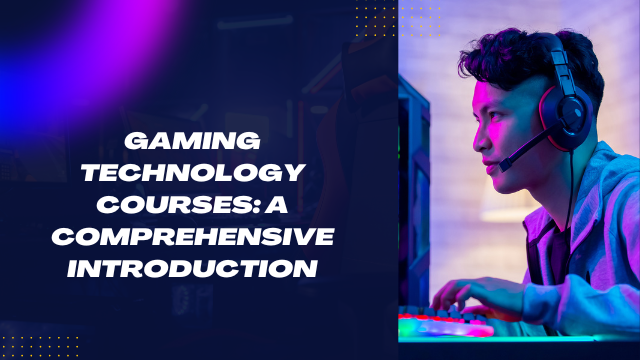Gaming Technology Courses: A Comprehensive Introduction

What are Gaming Technology Courses?
Gaming technology courses are educational programs designed to equip students with the skills and knowledge required to develop, design, and manage video games and interactive digital media. These courses cover a range of topics, from game design and development to graphics, animation, sound design, and even the business aspects of the gaming industry.
Also Read:- Razer Blade 15 2018 H2 Review- Ideal For Gaming and Business
Key Components of Gaming Technology Courses:
- Game Design: This component focuses on the conceptual side of game creation, including storyboarding, character development, level design, and gameplay mechanics.
- Game Development: Here, students learn about the technical aspects of creating a game, including coding, software development, and debugging.
- Graphics and Animation: Courses in this area teach students about 2D and 3D modeling, texture mapping, shading, and animation techniques.
- Sound Design: This involves creating sound effects, background scores, and voice-overs for games.
- Game Testing: Students learn how to test games for bugs, glitches, and gameplay issues.
- Virtual Reality (VR) and Augmented Reality (AR): These courses delve into the development of games for VR and AR platforms.
- Mobile Game Development: Focused on creating games for smartphones and tablets.
- Gaming Business and Marketing: These courses cover the business side of gaming, including marketing, distribution, and monetization strategies.
Benefits of Pursuing Gaming Technology Courses:
- Industry Relevance: The gaming industry is booming, and there’s a high demand for skilled professionals.
- Creativity and Innovation: Allows students to channel their creativity into creating unique gaming experiences.
- Diverse Career Opportunities: Graduates can work as game designers, developers, testers, sound designers, and more.
- Hands-on Learning: Many courses offer practical projects, internships, and opportunities to develop actual games.
Challenges in Gaming Technology Education:
- Rapid Technological Changes: The gaming industry is ever-evolving, and keeping curriculum updated can be challenging.
- High Competition: With the popularity of gaming courses, there’s stiff competition among graduates for top jobs.
- Intensive Curriculum: Developing a game requires a blend of creativity and technical skills, making the coursework intensive and demanding.
The Future of Gaming Technology Education:
- Emphasis on AR and VR: As AR and VR technologies become more mainstream, courses will place a greater emphasis on these areas.
- Cross-disciplinary Learning: Integration of gaming with other fields like healthcare, education, and business for broader applications.
- Focus on Indie Game Development: With platforms like Steam and itch.io, there’s a rise in indie game developers. Courses might focus more on equipping students to become independent developers.
In conclusion, gaming technology courses offer a blend of technical and creative education, preparing students for a dynamic and rewarding career in the gaming industry. As the industry continues to grow and evolve, the importance of formal education in gaming technology will only increase.










